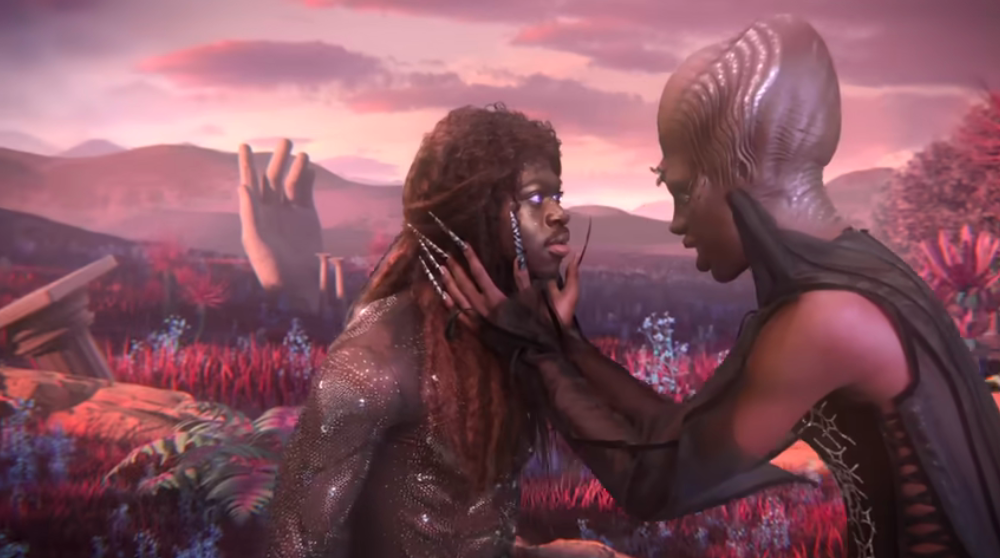The Montero Effect: How Lil Nas X Rebirthed the Satanic Panic
If you've heard of Lil Nas X, it's likely from one of two pop culture moments. Not to be confused by tribute to the old-school rapper Nas, Montero Lamar Hill rose to acclaim with his debut single "Old Town Road", a rural TikTok sensation that emerged in 2019 and found smashing success with younger audiences. A native Georgian from Lithia Springs, Lil Nas topped the country music charts with the help of featured artist Billy Ray Cyrus by flipping the script at every turn.
Young Montero was far from the first hopeful Zoomer to harness the power of internet culture for self-promotion, but it's hard to fathom his meme wasn't impacted by his stan days running Nicki Minaj fan accounts on Twitter.
It all started with $30 and a dream... and a meme. As a black musician in a white dominated industry, Lil Nas was already skating on thin ice with his target demographic. But things quickly changed pending his highly-anticipated debut album.
"I Wanna Sell What You're Buyin'"
Though his father was a gospel singer, Lil Nas X didn't set his sights on piety or becoming a role model for future generations.

Lil Nas X first came out in an entirely tame single, "C7osure (You Like)." This next level trolling led to "Montero (Call Me by Your Name)" topping at #1 on the Billboard Hot 100. Days later, Lil Nas partnered with New York-based collective MSCHF to release a modified pair of Nike Air Max 97s as seen on Satan's feet in the
music video of "Montero."
It seems that in the United States, each new year (and election season) brings with it a new moral panic spurred on by social media. Conservative pundits had a field day shaming the singer with the same rhetoric that inspired the video in the first place.
Regardless of where one stands on the controversy, it is clear that Lil Nas X has sparked a much-needed conversation about the intersection of art, sexuality, and religion in modern society. The backlash also raises important questions about the role of art and freedom of expression.
He churned out a few more hits like "INDUSTRY BABY" with Jack Harlow, another emerging rapper with a large internet following. In a promo video, the pair stage a "Nike vs. Lil Nas X" trial in the Supreme Court, in which people discuss the Satan Shoes before condemning the singer for his homosexual status.
Nas X isn't the first to get this reactionary treatment from the media, though he may be chasing the clout a bit further than the punk-rock and metal scene of the 70s. So why does all irony seem lost?
While the Lil Nas X controversy may have caused discomfort for some, it has also opened up important discussions about the role of artists in society and the need for greater acceptance and understanding of LGBTQ+ individuals.
